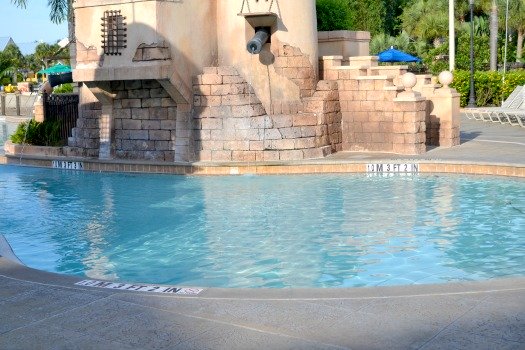Pool Maintenance Made Easy
S Scott's Pool Service Pool service near me
Stuart, Hobe Sound, Palm City
Port St. Lucie, FL
For Local Pool Service
772-634-3037
What is Alkalinity in a Swimming Pool?
Alkalinity is basically a test to control and stabilize acid in your swimming pool water. Also known as Total alkalinity or (TA). Raising (TA) to ideal levels will neutralize the acid and help maintain an ideal ph level. Much like when you have too much acid in your stomach, you calm it down with a neutralizer to make yourself feel better. We have to add acid to swimming pools to get a proper PH level. Adding the correct amounts of acid can make your pool water feel exactly like an upset stomach. The solution for adding all this acid to your water is to add sodium bicarbonate.
What is Sodium Bicarbonate?
Often referred to as “sodium bicarb”, it is simply baking soda. The same exact baking soda you might use around your house. Pool supply stores sell bicarb in large bags to accommodate your pools needs. You can find bicarb in various bag sizes ranging from 2 pounds to 50 pound bags. Sodium Bicarbonate is a main ingredient in antacids because of its ability to lower and stabilize acid levels in your body and it does the same job on your swimming pool water.
How do I add Sodium Bicarbonate to my swimming pool?
First, you want to test your pool water to measure the (TA) level. If you are unsure of proper testing methods then visit my page on “How to test chemicals in swimming pools”. Once you have established the alkalinity level in your swimming pool, you can add the appropriate amount needed. I usually pour the baking soda in a 5 gallon bucket and dip the bucket into the pool to add water. Then with any kind of stir stick (I use pvc pipe) simply stir the bicarb in the bucket and mix well with the water. Pour the bucket into the deep end of the pool so the baking soda has a chance to mix with lots of pool water.
Bicarb is one pool chemical that is relatively harmless for most people but always use caution with any chemical you add to a swimming pool. Maintaining proper sodium bicarbonate levels is critical to for keeping a healthy, properly balanced swimming pool.
Pool Maintenance Tip on Alkalinity Levels:
Always keep alkalinity between 80 ppm and 120 ppm. I usually check the level once per month unless more is needed due to added water such as heavy rain. I will add the necessary amount of bicarb to bring the alkalinity level up to 120. Never add more because it will cause other problems in your pool. Never let the level drop below 80 or you could have other problems.
Pool Maintenance Tip, if you ever add too much acid to your swimming pool:
If you ever add too much acid, your PH level might get too low. Low PH equals too much acid. You can add sodium bicarbonate to your swimming pool to help to raise the PH level. Maintaining alkalinity in your swimming pool will save you money on the amount of acid you will need to add.
